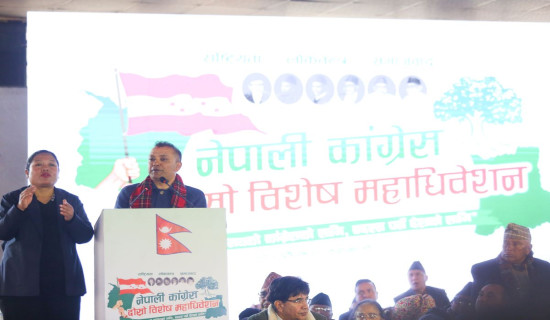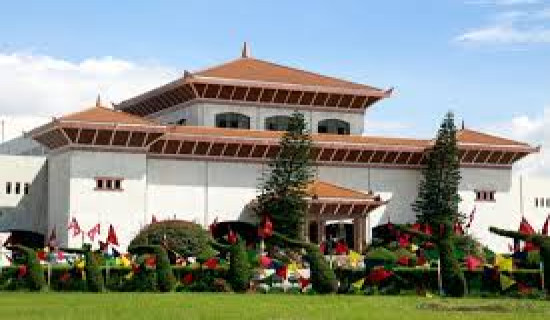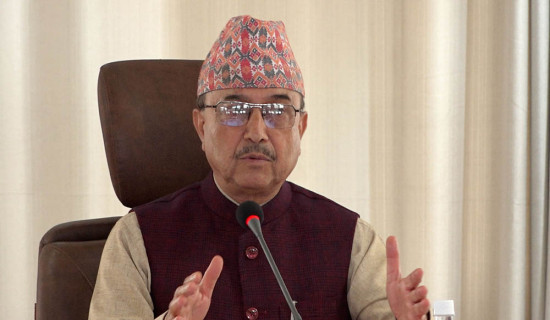- Monday, 12 January 2026
Institutionalise Federalism
Federal and provincial elections, held on November 20 last year, produced a hung parliament, resulting in uncertainty regarding the formation of new government in the centre and provinces. The political parties had contested the polls by forming alliances but both the ruling and opposition alliances were unable to muster majority in the 275-member House of Representatives (HoR). This gave rise to widespread misgiving whether the country will again plunge into the political stability. However, with the formation of new government under the leadership Pushpa Kamal Dahal Prachanda, the country’s politics has taken a right course, ending all sorts of speculations and suspense. Post-election saw the collapse of the old coalition, led by Nepali Congress, and emergence of new alliance involving CPN-UML, CPN-Maoist Centre and other fringe parties.
PM Prachanda’s dynamic leadership has enabled the country to break the potential political deadlock and stop polarisation as his government completed 30 days in office. He won unprecedented support in the HoR during the vote of confidence, instilling a confidence into the new dispensation. Upon being appointed to the post of highest executive, Prime Minister Prachanda had said that his priorities were to ensure stability, good governance, economic prosperity and social justice. These national goals can be met when the federal democratic system is institutionalised in the spirit of the new constitution adopted in 2015. The country conducted two elections of three-layer governance after the promulgation of new national charter but there still lie political, legal and administrative challenges to consolidate federal polity that seeks to promote distributive justice through fair allocation of resources and means of development among the populace.
Owing to the poor implementation of federal system, anti-systemic voices are also heard across the political spectrum. Some political parties racked up impressive number of votes in the recent polls by exploiting the people’s frustration over the slow delivery of goods and services for them. The failure in framing the vital bills such as the Federal Civil Service Act, Federal education Act and Federal and Province Police Bill has also hampered the process of institutionalising federal system. These bills are crucial to make provincial governments and local bodies powerful and autonomous. The other day lawmakers in the Upper House started discussing a report on 'Federalism Implementation Study and Monitoring' prepared by the Parliamentary Special Committee. Addressing the meeting, Prime Minister Prachanda expressed his worries on the growing centralised mentality of the politicians, bureaucrats and others over the implementation of federalism.
In the absence of aforementioned bills, the provinces and local bodies have become the units of the centre. Prachanda noted there was theoretical consensus among the parties on federalism and presidential system but only majority had accepted these systems. The PM also said that expenses and extravagance provided rooms for the critics of this system. The ruling alliance has proposed to reduce the number of provincial ministers to cut expenses of the provinces. Some days ago, a Cabinet Minister made negative comments on federalism. Responding to the queries of lawmakers, the PM said that the said minister had no moral and legal right to speak against federalism and the latter is liable to furnish explanation of this remarks. It is really a challenge to implement the federal system that requires higher understanding among the three-tier governments as well as adequate resources meant for creating separate bureaucratic, security and legal mechanisms. Moreover, it is the honesty and competency of the political leadership which is instrumental in realising the grand objective of the federal dispensation.
















